Recherche avancée

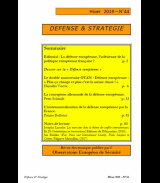 |
Double anniversaire OTAN - défense européenne: « Plus ça change et plus c’est la même chose ! »
Défense & Stratégie n°44, hiver 2019, pp.6-32
30 mars, 2020
Extrait: "Derrière les beaux discours sur « l’autonomie stratégique », la mise en œuvre oppose, comme toujours, le gaullisme résiduel de Paris à l’opinion majoritaire des partenaires qui tiennent à préserver, littéralement à tout prix, la primauté de l’Alliance atlantique. Jusqu’ici rien de nouveau. Sauf que la position française oscille – au pire moment, lorsque tous les événements la confortent pourtant – entre deux approches. Entre « intransigeance sur les principes » et « composer avec le réel », elle espère pouvoir ménager la chèvre et le chou. Autrement dit : avancer vers l’objectif d’émancipation européenne sans trop heurter le tropisme atlantiste-otanien de ses partenaires de l’UE – ce qui équivaut à la quadrature du cercle. Cette démarche a conduit à une extraordinaire confusion dans le discours du président Macron à l’Ecole de Guerre en février 2020, où il a réussi à placer dans un même paragraphe les deux visions antinomiques. D’un côté, il parle de « cette Europe de la défense, ce pilier européen au sein de l’OTAN », de l’autre il met les deux sur un pied d’égalité :« l’OTAN et l’Europe de la défense sont les deux piliers de la sécurité collective européenne » Tôt ou tard, il faudra choisir..."
|
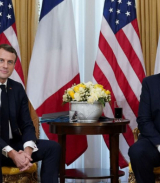 |
Qui a plus « besoin de l’OTAN » ? La France ou… les USA?
IVERIS
12 déc, 2019
Coutumier des déclarations fracassantes mais pas forcément étayées par les faits, le président Trump en a placé deux d’un coup, au dernier sommet de l’Alliance, lors d’une conférence de presse : « Personne n’a besoin de l’OTAN plus que la France (…) Les Etats-Unis en tirent vraiment le moins de bénéfices ». Deux inepties qui méritent que l’on s’y arrête.
|
 |
Proposition indécente ? Ce que l’idée de Trump d’acheter le Groenland nous dit sur l’OTAN
IVERIS
22 sept, 2019
En jetant son dévolu sur l’île de Groenland, le président Trump a provoqué, comme à l’accoutumée, un mélange de consternation, d’opprobre et de franche rigolade sur la scène internationale. La plupart des commentaires se contentaient de critiquer son style et sa bouderie : il a parlé d’une « grosse transaction immobilière » et, face au refus de vente, il a annulé sa visite prévue et traité les propos du Premier ministre danois de « méchants ». Des observateurs plus avisés ont fait remarquer que l’initiative de Trump est moins fantasque qu’elle n’y paraît au prime abord – elle s’inscrit dans une politique américaine poursuivie de longue date dans la région. Quoi qu’il en soit, pour l’Europe l’essentiel n’est pas là. Il est plutôt dans la mise à nu, pour la énième fois depuis l’arrivée de Trump au pouvoir, d’un raisonnement américain aussi implacable qu’inconfortable.
|
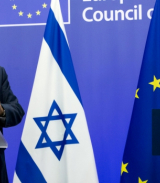 |
Jérusalem : le président Trump met au défi les réflexes « pavloviens » des Européens
Foreign Policy Research Institute
18 mai, 2018
Avec la reconnaissance de Jérusalem comme capitale d’Israël et la décision d’y transférer l’ambassade US, le président Trump a fait un premier pas pour briser l’un des réflexes les mieux ancrés des Européens. Car, comme l’avait remarqué l’ancien commissaire européen Chris Patten, sur le dossier proche-oriental en particulier « le principal déterminant du comportement politique de l'Europe » a été jusqu’ici « le refus pavlovien de toute ligne de conduite qui pourrait éloigner l'Europe des Américains ».
|
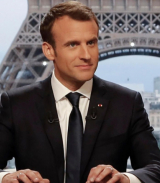 |
Sur la Syrie et Trump, le président Macron dans l’illusion de l’influence
Brèves, 16 avril, 2018
Quelques secondes dans un entretien télévisé de plus de deux heures et demie ont propulsé le président de la République à la une de la presse étrangère, comme celui qui dit avoir influencé la politique du président Trump en Syrie. A quatre reprises il y répétait que « nous l’avons convaincu » de rester militairement engagé en Syrie, et de limiter les frappes aériennes aux capacités chimiques du régime. Par ces propos publics, le président français n’a pas seulement commis une gaffe. Il a aussi, et surtout, révélé d’être tenté par une approche pour le moins naïve des relations avec les Etats-Unis, laquelle avait déjà, à d’innombrables fois, conduit les Britanniques dans l’impasse.
|
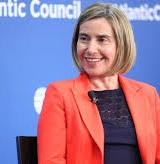 |
L’UE réclame la non-ingérence de la part de l’Amérique
Brèves, 14 févr, 2017
Lors d'une discussion au Conseil atlantique de Washington, la Haute représentante de l’UE a fait savoir, le répétant par trois fois, que l’Amérique est priée de ne pas s’interférer dans les affaires européennes. Une mise au point salutaire, certes. A condition d’en faire une règle générale (et non pas une simple revendication par dépit, au cas par cas).
|
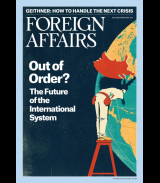 |
Saut dans l’inconnu – guide de la présidence Trump, par deux initiés
Brèves, 16 janv, 2017
Au lancement du numéro de janvier-février de la revue Foreign Affairs, deux pointures des débats stratégiques US se sont aventurées à faire des pronostics sur la façon dont va se définir la politique de sécurité nationale sous la nouvelle administration des Etats-Unis.[1]
|
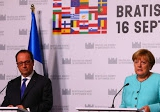 |
Défense européenne : « c’est parti » ?
Note IVERIS
20 sept, 2016
Interrogé le jour du sommet informel de l’UE à Bratislava, le 16 septembre, le ministre des affaires étrangères français assure : « on est en train d’avancer sur une politique commune de défense ». A la remarque sceptique qui s’en est suivie pour noter qu’il y a maintenant vingt ans que l’on en parle, de cette Europe de la défense, Jean-Marc Ayrault répond, apparemment sûr de lui : « Oui, mais ça y est, c’est parti ». Que son optimisme soit fondé ou pas, une chose est certaine : la défense européenne n’a jamais bénéficié d’une constellation aussi favorable que ces jours-ci.
|
 |
Les USA vont-ils pouvoir engager les troupes de l’OTAN ?
Note IVERIS
10 nov, 2015
Peu évoqué en public, l’un des dossiers les plus déterminants pour l’avenir de l’OTAN concerne la proposition américaine qui souhaiterait que le Commandant suprême US soit investi de l’autorité de déployer, de son propre chef, les troupes de l’Alliance. A la conférence de Riga, cette question d’habitude présentée de façon délibérément ambiguë, a donné lieu à des clarifications édifiantes.
|
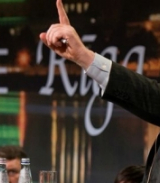 |
Une OTAN très combative à la Conférence de Riga
Note IVERIS
07 nov, 2015
Le premier panel de discussion de la Conférence de Riga, intitulé « L’OTAN défenseur de la stabilité globale », n’a laissé aucun doute sur les préférences des participants. Que ce soit un général britannique ancien Commandant suprême adjoint de l’Alliance, le M. Sécurité de la Fondation Adenauer en Allemagne, un ancien ambassadeur américain à l’OTAN, ou le Secrétaire d’Etat du ministère de la Défense de la Lettonie, ils sont tous pour une approche dure vis-à-vis de la Russie. Leur unique réserve par rapport à la politique actuelle des Etats-Unis et de l'OTAN est qu’elle ne s’affirme pas avec une fermeté suffisante.
|
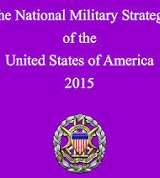 |
L’Amérique craint pour « son » ordre mondial
Note IVERIS
29 sept, 2015
Un récent rapport du Service de recherche du Congrès américain (CRS) se penche sur le « Changement dans l’environnement international de sécurité et les potentielles implications pour la défense ». Les formules de prudence cachent à peine que, d’après le rapport, une mutation a bel et bien eu lieu, marquée par la « tactique du salami » (tranche après tranche) pratiquée par Pékin en Mer de Chine orientale et la « guerre hybride » menée par la Russie en Ukraine. Cette nouvelle donne sécuritaire se caractérise par « le renouvellement de la compétition entre les grandes puissances » et « la remise en cause de certains éléments de l’ordre mondial dominé par les Etats-Unis ».
|
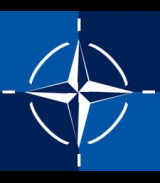 |
L’OTAN cherche à contourner la règle du consensus
Note IVERIS
25 aout, 2015
Le jour s’approche-t-il où l’Amérique pourra, de son seul fait, entraîner l’ensemble de l’OTAN dans une guerre ? La question n’est hélas pas aussi surréelle qu’elle n’y paraît. A la réunion ministérielle de l’Alliance, fin juin, le SACEUR (commandant suprême) « a reçu l’autorité d’alerter, de mobiliser et de préparer les troupes » de son propre chef, en attendant le feu vert du Conseil pour le déploiement sur le terrain. Mais soyons réalistes : les troupes déjà sur le tarmac, les avions prêts à décoller, les tambours battants – difficile d'imaginer comment un Etat membre réticent oserait, à ce stade, monter au créneau pour arrêter la machine de guerre de l’Alliance.
|
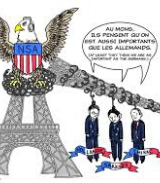 |
A la réunion de l’OTAN, bon courage pour parler de renseignement
Notes d’actualité, 24 juin, 2015
L’ambiance n'est pas assurée, pour la réunion ministérielle de l’Alliance atlantique aujourd'hui. Le moins que l’on puisse dire, c’est que la démonstration prévue de la parfaite unité transatlantique est quelque peu entachée par les toutes récentes révélations de Wikileaks sur l’espionnage américain contre trois présidents de la République successifs. L’actuel chef de l’Etat y compris.
|
 |
La CIA aime travailler en Europe: c'est facile, c'est chic et on reste entre amis
Notes d’actualité, 28 déc, 2014
La CIA forme ses agents à déjouer les contrôles de sécurité aux frontières de l’UE, d’après les manuels de l’Agence de renseignement US publiés par Wikileaks. Comme le note celui-ci, les documents, datés de 2011 et 2012, « prouvent que l’administration Obama et la CIA continuent de vouloir infiltrer les frontières de l’Union européenne, en conduisant des opérations clandestines sur le sol européen ». Sans surprise, ils sont classés « NOFORN » (pour no foreigners), autrement dit à ne pas partager avec les services d’espionnage alliés.
|
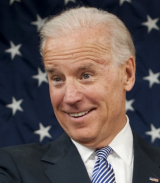 |
Joe le Sniper sur l'arrière-fond des sanctions européennes contre la Russie
Brèves, 10 oct, 2014
Le vice-président (VP) américain, fidèle à sa réputation de franc-parleur/gaffeur invétéré, a donc récemment admis (le 2 octobre, à l’université de Harvard) que c’est sous la pression des Etats-Unis que l’UE avait fini par adopter les sanctions contre la Russie. Ou comme dit l’inimitable Biden : « c’est vrai qu’ils ne voulaient pas le faire », « mais encore une fois, c’est le président des Etats-Unis qui a dû insister » auprès des Européens.
|
 |
La Russie aurait-elle vraiment mal calculé ?
Brèves, 05 avril, 2014
Au vu de l’OTAN revivifiée, sous prétexte d’un nouveau « clear and present » danger, la question se pose inévitablement: le président Poutine se serait-il tiré une balle dans le pied ? Certainement pas. Quoi que l'on puisse penser du reste, il est difficile de croire que le pouvoir russe n’ait pas prévu la réaction de l’Alliance. C’était plus que prévisible – c’était évident. Pourquoi Moscou a donc pris le risque d’aller de l’avant avec un plan qui promettait, dès le départ, non seulement d'antagoniser mais aussi de ressouder l’Occident ?
|
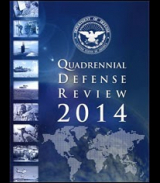 |
Analyse à chaud : Quadrennial Defense Review 2014
Notes d’actualité, 06 mars, 2014
Le voilà, le tout nouveau Quadrennial Defense Review du Pentagone, prêt à être disséqué par les alliés anxieux de voir s’ils sont toujours dans les bonnes grâces de Washington. De ce point de vue, le document est dans la droite lignée de la rhétorique-tactique des responsables US, telle qu’elle fut exposée lors de la Wehrkunde (Conférence sur la sécurité annuelle à Munich) de février dernier. L’Amérique y souffle le chaud (tout en fanfare) et le froid (en catimini). Convaincue, à juste titre, que c’est la meilleure manière de rendre les Européens toujours plus dociles.
|
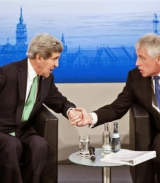 |
John et Chuck, deux artistes émérites de la « renaissance transatlantique »
Brèves, 05 févr, 2014
Pour résumer la cinquantième édition de l’inoxydable Wehrkunde (conférence de sécurité, organisée chaque année à Munich, avec la participation de la crème de la crème transatlantique), le moins que l’on puisse dire, c’est que les responsables américains ont caressé leur auditoire, européen pour la plupart, dans le sens du poil. Ce qui fut prévisible, pour ne pas dire normal.
|
 |
Petites perles de la semaine écoulée (3 novembre 2013) - compilation des entrées Google+
Brèves, 03 nov, 2013
NSA/Europe
1. Berlin, nid d’espions US. Visiblement, la Chancelière devient susceptible quand on touche à son portable. Pour rappel : jusqu’à la nouvelle que son « instrument de puissance » favori pourrait être surveillé par la NSA, Mme Merkel avait fait profil bas. Elle ne s’était pas offusquée outre mesure en apprenant cet été que ses compatriotes furent massivement écoutés par les services US, ni ne s’était montrée vraiment compatissante quand son partenaire français s’offusquait il y a une semaine. Mais tout ça, c’était avant l’affaire du portable. Depuis, elle n’arrête pas de s’indigner à tout va. Compte tenu des dernières précisions, elle aura encore de quoi.
|
 |
NSA/Europe: Ordre dans le désordre
Theatrum Belli
31 oct, 2013
Ces derniers jours, l’enchaînement d’accusations, de suspicions, de démentis et de révélations à répétition fait que l’on a l’impression d’être devant une affaire aussi complexe qu’impénétrable. Alors qu’au fond elle est plutôt simple. S’y superposent, en réalité, deux affaires. Celle du transfert de données vers l’Amérique par des pays européens, dans le cadre de leurs accords bilatéraux de coopération avec Washington en matière de renseignement. Et celle de la surveillance/espionnage que mènent les Etats-Unis pour leur propre compte, contre ces mêmes pays européens.
|
 |
NSA/Europe: Cela commence à devenir intéressant…
Brèves, 30 oct, 2013
Les Etats-Unis accusent carrément de mensonge (délibéré ou par omission, c'est selon) les dirigeants européens. Responsables à l’origine des fuites Snowden/NSA, les Américains n’ont même pas été capables de jouer le jeu pendant quelques semaines, encaisser les pseudo-coups diplomatiques (des protestations sans conséquence, venues des capitales du vieux continent) et attendre tranquillement que ça passe.
|
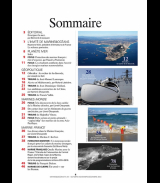 |
Les forces navales européennes, entre éclipse et dépendance ?
Marine&Océans n°241, automne 2013
22 oct, 2013
Le think-tank néo-conservateur American Enterprise Institute vient de publier un rapport particulièrement dense (1) analysant l’évolution des principales marines européennes, sous le titre « L’OTAN en mer : tendances concernant la puissance navale des alliés ». Ses conclusions sont limpides : les marines française, britannique, espagnole et italienne (l’Allemagne étant considérée comme un cas à part) sont toutes confrontées à cet exercice délicat qui consiste à réduire leur format tout en essayant de préserver, dans la mesure du possible, une certaine polyvalence.
|
 |
Quand le bât commence à blesser... (espionnage par la NSA en France)
Brèves, 22 oct, 2013
L’argument-constat selon lequel « de toute façon, tout le monde espionne tout le monde » tombe complètement à côté de la plaque. Nous le savons déjà, le problème n’est pas là. L’utilité de telles affaires (scandale NSA/Snowden aujourd’hui, les câbles diplomatiques divulgués par Wikileaks en décembre 2010) n’est pas de nous révéler quelque chose d’absolument inouï. Au contraire, elles mettent la lumière sur ce qui est l’évidence même. A savoir que nos rapports avec l’Amérique sont basés sur la bonne vieille logique des relations d'Etat à Etat. Autrement dit sur la Realpolitik.
|
 |
L'A400M dans une optique américaine
Notes d’actualité, 02 oct, 2013
Certes les Etats-Unis ne pourront pas ne pas se réjouir officiellement, en voyant leurs alliés commencer à combler l'une des principales lacunes capacitaires qu'ils leur reprochent depuis si longtemps. Mais ce n'est que la façade. L'A400M est un concurrent et un outil d’autonomie européenne comme ils ne les aiment pas. Un article du Washington File du Département d’Etat datant de 2006 précise déjà que « Les US recommandent aux alliés OTAN de mettre en commun de l’argent pour acheter des C-17 ». Une solution présentée comme bénéfique pour les affaires de Boeing et qui serait du même coup la meilleure façon de pallier les carences des Européens en matière de transport stratégique.
|
 |
L’indépendance écossaise et la question de la sécurité transatlantique et européenne
University of Glasgow International Lecture Series
21 mars, 2013
La position particulière du Royaume-Uni dans l’espace de sécurité européenne et transatlantique constituera l’un des premiers éléments déterminants et pour l’attitude des autres Etats face à une éventuelle indépendance écossaise (voudraient-ils ou pas voir Londres s’affaiblir même si juste momentanément), et pour leur appréciation des politiques menées par une Ecosse indépendante (seront-elles en ligne, ou se différencieront-elles, et si oui, sur quels points, des politiques de Whitehall). Dans les deux cas, Londres et non pas Edinburgh sera le point de référence.
|
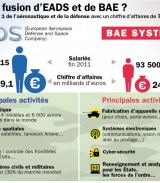 |
L’échec de la fusion BAE-EADS : que reste-t-il après une tentative de trahison ? L’intention…
Theatrum Belli
19 oct, 2012
La faillite du projet de fusion BAE-EADS fut accueillie par un mélange de déception, de tristesse et de noble fureur par la quasi-totalité des commentaires. Déception et tristesse pour l’Europe, supposée être la grande perdante de l’affaire, et fureur contre les Etats égoïstes, qui auraient manqué cette superbe occasion rien que pour satisfaire leurs vilains intérêts. En y regardant de plus près, ce poignant récit devient exactement son inverse. L’Europe devrait être soulagée d’avoir reçu une seconde chance avant de se réveiller un jour pour voir son secteur stratégique télécommandé depuis Washington par le duo Pentagone-Maison Blanche. Et le seul reproche que l’on puisse faire aux gouvernements (à part leurs mobiles, parfois bien piteux au regard des enjeux), c’est qu’ils n’ont pas été plus fermes.
|
 |
Wikileaks - sous un PRISM transatlantique
Notes d’actualité, 16 déc, 2010
L'affaire Snowden/PRISM vient de (re)mettre en lumière tout ce que le scandale Wikileaks autour des câbles diplomatiques US avait déjà confirmé de manière éloquente.
|
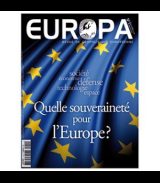 |
Autonomie ou assujettissement : la dimension militaire de l'impératif de souveraineté européenne
Europa, n°1, novembre 2009
15 nov, 2009
Aussi complexe que puisse paraître le sujet indiqué dans le titre, le point de départ de l’analyse peut être réduit à trois constats simples. Dès qu’il s’agit de souveraineté, nos rapports avec l’Amérique sont au cœur du problème. Or, les relations transatlantiques ont pour caractéristique fondamentale la dépendance européenne. Or, l’indépendance est la condition sine qua non de la crédibilité et du libre-arbitre ou, en d’autres termes, de l’existence même au sens géopolitique.
|
 |
L'Europe face à un monde multipolaire en déséquilibre
The Federalist Year LI, 2009
07 mars, 2009
La place de l’Europe est loin d’être assurée sur l’échiquier géopolitique, actuellement en pleine reconfiguration. Pourtant, cela fait déjà un bon moment que les évolutions en cours sont amorcées et que les grandes lignes de ces mutations se dessinent de manière plutôt limpide. Ce que l’on désignait, au lendemain de la disparition de l’Union soviétique, comme « le moment unipolaire » touche inexorablement à sa fin, n’en déplaisent à ceux qui voulaient, et pour certains voudraient encore, y placer tous leurs espoirs. Les Etats-Unis, toujours soucieux de maintenir leur leadership dans les affaires de la planète, ont été longtemps agacés d’entendre parler de « monde multipolaire ». Ils y voyaient l’expression codée d’un complot anti-américain. Auquel agacement les responsables européens, en particulier français, n’avait de cesse de rétorquer qu’il s’agissait non point d’un projet, mais d’un constat tout simple.
|
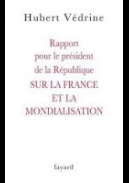 |
La France, l’OTAN et l’Occident – à la marge du rapport Védrine
La Lettre Sentinel n°47, octobre 2007
31 oct, 2007
Dans son Rapport sur la France et la mondialisation, rédigé à la demande du Président de la République, Hubert Védrine aborde la question de l’OTAN à l’intérieur du chapitre consacré à « L’option atlantiste/occidentaliste ». Fort à propos, l’ex-ministre des Affaires étrangères distingue cette dernière de « la politique normale d’amitié et de coopération avec les Etats-Unis », et la décrit comme « une réorientation en profondeur » qui s’inscrit dans le schéma du choc des civilisations : « Menacés, les Occidentaux devraient se serrer les coudes ».
|
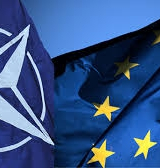 |
Le syndrome UE-OTAN: coup de projecteur sur les réalités transatlantiques
Journal of Contemporary European Research Vol3 I2
21 sept, 2007
Contrairement aux deux courants dominants, quoique diamétralement opposés, des pronostics qui furent très à la mode il y a quelques années, il apparaît de plus en plus clairement que les casse-tête liés à la problématique UE-OTAN sont appelés à durer. Ceux qui, au vu des difficultés initiales à établir des relations mutuellement acceptables entre les deux organisations, parlaient de « maladies de jeunesse » susceptibles de céder la place, avec le temps, à une insertion harmonieuse du nouveau-né « PESD » (politique européenne de sécurité et de défense) dans le système atlantique, ont eu tout aussi tort que ceux qui y voyait encore une nouvelle occasion pour sonner le glas de l’Alliance atlantique. Hélas, pour l’heure et dans un avenir prévisible, aucun des deux scénarios ne semble près de se réaliser.
|
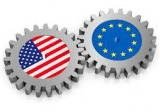 |
Les questions d’armement sous un éclairage transatlantique
Présentation à l’Université d’été du CIFE-IEHEI
04 sept, 2007
Après avoir relevé quelques enjeux liés au secteur de l’armement, un bref rappel historique propose de clarifier le contexte des débats actuels. On abordera ensuite certaines caractéristiques générales de l’industrie de défense américaine d’une part, européenne de l’autre. Finalement, des mythes trompeurs seront décryptés, notamment l’imposture de l’« écart » technologique, la sainte horreur inspirée par la notion d’« Europe forteresse » et l’éloge tendancieux de la « complémentarité ».
|
 |
Convergences et collisions euro-américaines (revue de livre)
La Lettre Sentinel n°46, juin 2007
28 juin, 2007
Un coup de projecteur dans les coulisses de l’activisme (public-privé) américain à l’Union européenne, voilà ce que nous propose Florence Autret dans son dernier ouvrage. Et elle tient sa promesse. L’éclairage qu’elle apporte est impitoyable : non pas tant pour ceux qui agissent pour promouvoir, certes parfois un tantinet trop brutalement, les intérêts particuliers ou collectifs qu’ils représentent, mais pour ceux qui se contentent de subir – au risque de compromettre, pour ne pas dire trahir, les intérêts qu’ils seraient censés, eux, défendre et représenter.
|
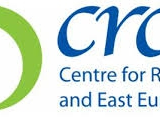 |
L'impact de l'adhésion à l'UE sur la politique étrangère
University of Glasgow CRCEES Research Forum
11 mai, 2007
Forum annuel de recherche CRCEES (Centre for Russian, Central and East European Studies) Intervention sur l'impact de l'adhésion à l'UE sur la politique étrangère des pays d'Europe centrale et orientale.
|
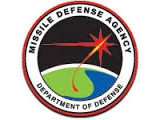 |
Levée de bouclier(s) : interrogations autour du projet américain de défense antimissile
La Lettre Sentinel n°45, mars-avril 2007
06 avril, 2007
Durant la dernière année de l’administration Clinton et les neuf premiers mois de l’équipe Bush au pouvoir, un large consensus s’était dessiné dans les conférences d’experts et les réunions semi-officielles des deux côtés de l’Atlantique : tout le monde fut d’accord pour dire que la NMD (National Missile Defense) allait devenir « le » grand sujet de controverse des mois et années à venir.
|
 |
L'autonomie européenne entre rhétorique et réalités
La Lettre Sentinel n°41-42, octobre-novembre 2006
30 nov, 2006
Pour ce qui est du choix systématiquement occulté entre dépendance ou indépendance pour l'Europe, dans les textes, tout semble clair comme de l’eau de roche. Au moment du lancement de la PESD (politique européenne de sécurité et de défense), en juin 1999 à Cologne, la déclaration des Quinze stipule d’emblée l’exigence d’autonomie et de crédibilité des moyens de l’Union. Ce qui s’inscrit parfaitement dans les objectifs déclarés à l’article 11 du Traité sur l’Union européenne, notamment « la sauvegarde des valeurs communes, des intérêts fondamentaux, de l’indépendance et de l’intégrité » de l’UE. Toutefois, non seulement nous sommes toujours en attente pour voir quand ces belles paroles seront-elles traduites dans les actes, mais la question même de savoir si elles devraient l’être un jour reste objet de débat.
|
 |
Prospective sur la défense européenne
Biztonságpolitikai és Honvédelmi Kutatások Központ
06 aout, 2006
Il convient d’abord de souligner que ni les élections françaises de 2007, ni celles aux Etats-Unis en 2008 n’altèreront de manière notable – c’est-à-dire outre les gestes et effets d’annonce programmés pour ces occasions – les orientations traditionnelles de la politique étrangère et de sécurité des pays en question. De même, les péripéties du nouveau traité européen, le rythme effectif de la fuite en avant de l’UE par l’élargissement, et les multiples initiatives transatlantiques basées sur des changements d’emballage à Washington sont parfaitement secondaires du point de vue de l’évolution réelle de la construction européenne et de nos relations avec les Etats-Unis.
|
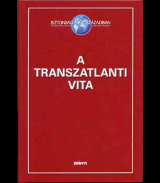 |
Vers la démystification de la relation transatlantique
A transzatlanti vita (ed. H. Vincze)
04 mai, 2006
Les relations euro-américaines sont périodiquement ennuagées par les « malentendus » dits ponctuels, les escarmouches verbales prétendument imprévues, les tempêtes diplomatiques qui semblent se lever d’un jour à l’autre, et d’autres manifestations de la suspicion mutuelle. Leur perception est dramatisée de façon exponentielle par le fait qu’elles surgissent de sous le couvercle d’une prétendue communauté de valeurs et d’intérêts, dans une relation supposément impeccable. Ce contraste, qui peut paraître inexplicable, augmente le risque de la montée en puissance d’une réaction viscérale (issue justement de l’incompréhension) des deux côtés de l’Atlantique : l’anti-américanisme ici, sentiment d’hostilité vis-à-vis de l’Europe là-bas.
|
 |
Chevaux de Troie ? : la nouvelle Europe à l’entrée de l’Union
Journal Francophone de Budapest
18 févr, 2004
Participant à un forum sur la sécurité transatlantique à Munich, le 3 février dernier, le secrétaire américain à la Défense, Donald Rumsfeld, persiste et signe. Il déclare toujours « ne pas regretter » sa remarque scandaleuse de janvier 2003 sur l’opposition entre une « vieille Europe » traîtresse mais sans importance (à savoir la France et l’Allemagne opposées à la guerre en Irak) et la « nouvelle Europe » fidèle et pleine de promesses (il s’agit des pays d’Europe centrale et orientale dont les gouvernements ont fait allégeance à l’Amérique belliciste).
|
 |
Visions et contre-visions, ou sur les contradictions fondamentales des relations transatlantiques
Külügyi Szemle 2003/4
01 déc, 2003
La crise irakienne n’a fait que révéler au grand jour les tensions structurelles des relations euro-américaines, couvées depuis des décennies et devenues plus épineuses après la fin de la période bipolaire. Outre la pseudo-vision officielle et les visions d’occasion représentées par les inconséquences allemandes, les deux grandes visions, concurrentes l’une de l’autre, sur l’Europe, les relations transatlantiques et l’ordre international sont défendues par la Grande-Bretagne et la France.
|
 |
La grande Europe officialisée à Athènes
Journal Francophone de Budapest
23 avril, 2003
Si le Conseil européen d’Athènes n’a rien apporté de fondamentalement nouveau (vu que la décision d’admettre dix nouveaux pays avait été prise à Copenhague et que leur entrée dans l’Union ne deviendra effective que le 1er mai 2004), le choix du site, de même que la présence collective et la prestation solennelle des protagonistes ont incontestablement donné de l’allure à la cérémonie.
|
|
 |
Les plus lus


|



